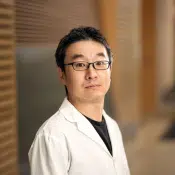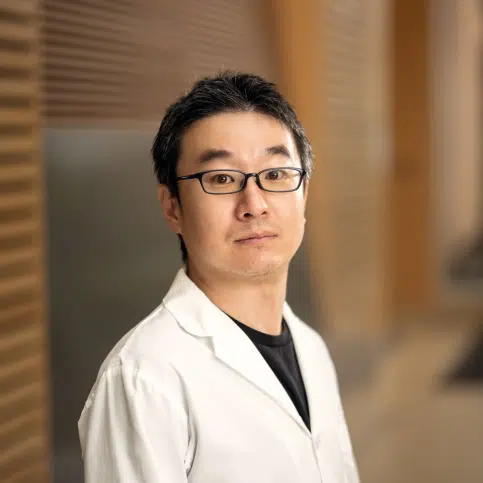Researcher Spotlight: Tomohiro Aoki, MD, PhD
UNIVERSITY HEALTH NETWORK
Peykoff Initiative Investigator

Cancer cells exist within a greater tumor microenvironment that is modified by tumor cells to support their growth and proliferation. These cells can also modify their environment to help avoid immune detection, thereby supporting continued survival within the body. “Our research project focuses on improving knowledge about how malignant cells evade the immune system to translate findings into better treatments for patients,” explains Dr. Aoki, a clinical research fellow at Princess Margaret Cancer Centre in Canada. He hopes that by studying the greater cancer “ecosystem,” his work will identify novel treatment targets and pave the way for innovative clinical trials in lymphoma.
Dr. Aoki was named a Lymphoma Scientific Research Mentoring Program (LSRMP) Scholar in 2021 and has been an active member of the Lymphoma Research Foundation community ever since. In fact, he is the first person to receive all three of the Foundation’s major research grants, including an LSRMP grant, a Postdoctoral Fellowship Grant, and a Career Development Award (CDA).
As a CDA recipient, he looks forward to giving back to the Foundation’s community and supporting other aspiring lymphoma scholars. “I aim to be actively involved in mentoring activities for the next generation of scientists and physicians,” he says.
“I have treated numerous patients diagnosed with cancers, including lymphoid cancers, as a physician and witnessed many of my patients suffering from progressive/refractory diseases,” says Dr. Aoki. “From this experience, I felt a strong desire to pursue translational research to improve patient survival by developing more effective therapies.”
Looking ahead to the future, Dr. Aoki is optimistic that advancements in immunotherapy will continue to improve outcomes for lymphoma patients, and he looks forward to contributing to the research that drives this progress. “I would like to continue innovative research that leads to clinical trials and contributes to improving clinical outcomes of lymphoid cancer patients,” he says.


